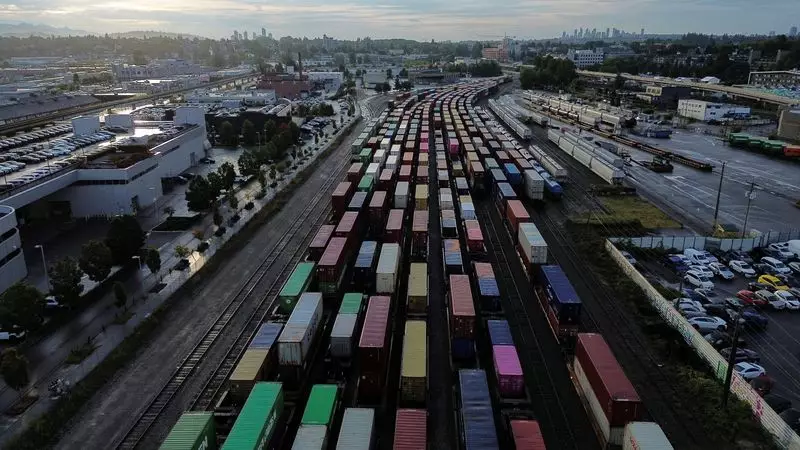The recent rail stoppage in Canada, initiated by the two biggest freight rail operators CN and CPKC, has the potential to devastate the country’s economy. Economists and analysts warn that if the stoppage continues for weeks, Canada could see a significant shrinkage in its GDP, leading to job losses and a rise in consumer prices. According to Pedro Antunes, chief economist at the Conference Board of Canada, a two-week strike could result in a $3 billion loss in nominal GDP, whereas a four-week strike could lower GDP by nearly $10 billion in 2024, resulting in 49,000 job losses.
Immediate Impact
Senior economist Robert Kavcic from BMO Capital Markets predicts that the rail stoppage could have an immediate impact on Canada’s economic growth. He estimates that the stoppage could shave around 0.1 percentage points off economic growth each week, amounting to over $2 billion in nominal GDP terms. This simultaneous stoppage of the majority of Canada’s rail freight is considered “growth-negative and inflation-positive” by Kavcic, highlighting the severity of the situation.
Economic Conditions in Canada
Canada’s economic growth has been lackluster this year, with consumers and businesses facing challenges due to high-interest rates. Although the Bank of Canada has started trimming its policy rate to boost the economy, rising unemployment and a wave of mortgage renewals are expected to keep economic conditions strained. This makes the timing of the rail stoppage even more critical, as it could further exacerbate the existing economic challenges faced by the country.
While past rail stoppages in Canada have usually been short-lived, economists are concerned about the potential impact of a prolonged strike. Randall Bartlett, senior director of Canadian economics at Desjardins, noted that if the stoppage lasts beyond a few weeks, it could result in significant economic damage. Derek Holt, head of capital markets economics at Scotiabank, also highlighted the exponential increase in GDP drag with each passing day beyond three weeks, indicating the urgency in resolving the labor disputes.
Canada, being the second-largest country by area, heavily relies on CN and CPKC to transport essential commodities and goods. The total rail freight cargo hauled annually in Canada exceeds C$380 billion, with a significant portion moving through CN and CPKC’s tracks. The disruption in rail services not only affects the transportation of goods but also has far-reaching implications on various sectors of the economy, further emphasizing the importance of a quick resolution to the ongoing labor issues.
The potential rail stoppage in Canada poses a serious threat to the country’s economy. With estimates of billions of dollars in GDP losses and thousands of potential job losses, the impact of a prolonged strike could be devastating. It is essential for all stakeholders involved to swiftly address the labor disputes and work towards a resolution to prevent further economic damage.

